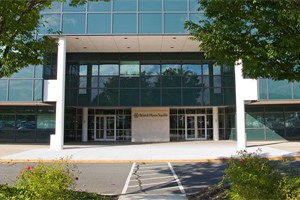
Bristol-Myers Squibb has bagged two more FDA approvals for Opdivo, making it the first PD-1 inhibitor for advanced kidney cancer and first-line melanoma therapy.
In both cases the approvals have been granted in a vanishingly short time on the back of data showing a survival advantage for Opdivo (nivolumab) over standard therapies, demonstrating the clinical importance of the new drug class.
The new melanoma indication is for previously-untreated patients with BRAF wild-type tumours, and is based on interim results from the CheckMate-066 which revealed a 58% reduction in the risk of death for BMS’ drug versus dacarbazine.
Median progression-free survival (PFS) was 5.1 months for Opdivo and 2.2 months for the comparator drug, while median overall survival had not been reached for the PD-1 inhibitor after 10.8 months. The overall response rates were 34% and 9%, respectively.
The new kidney cancer indication for Opdivo is second-line patients with advanced renal cell carcinoma (RCC) – the most common form of kidney cancer in adults.
Approval is based on overall survival data from the CheckMate-025 study, which showed that BMS’ drug reduced the risk of death by 27% compared to Novartis’ Afinitor (everolimus). Those treated with Opdivo lived an average of 25 months after starting treatment compared to 19.6 months in the Afinitor group.
The FDA notes that Opdivo is the first drug to show an improvement in overall survival in RCC since Novartis’ Torisel (temsirolimus), which was approved in 2007.
Such is the unmet medical need in RCC that analysts expect Opdivo to make rapid headway in the market, adding to its already buoyant sales momentum, and extending the drug’s lead over rival therapies such as Merck & Co’s PD-1 inhibitor Keytruda (pembrolizumab) and similar drugs coming through the pipeline.
RCC will add more than $1bn in sales for the drug at peak, according to Morgan Stanley, while additional indications such as first-line non-small cell lung cancer (NSCLC) therapy, head and neck cancer, bladder cancer and haematological malignancies may continue to propel the drug forward in the next couple of years.
Opdivo has achieved sales of $467m for BMS since launch – $305m of that in the third quarter of 2015 – and is predicted to lead the checkpoint inhibitor market with several billion dollars in peak sales by 2020.




